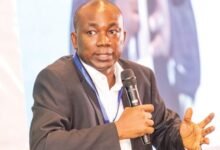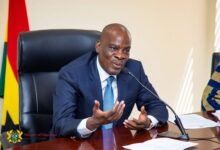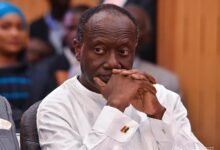
The National Democratic Congress (NDC) has urged Ghanaians to actively participate in the upcoming District-Level Elections scheduled for tomorrow.
The party emphasised the significance of the exercise in the country’s governance processes, highlighting its pivotal role in local and decentralisation governance.
In a press statement signed and issued by the National Chairman of the party, Johnson AsieduNketiah, the NDC pledged to eliminate the Capping and Alignment policy, aiming to release the District Assembly Common Fund (DACF) when voted for the 2024 general elections.
“Over the years, Ghana’s local government system has been acclaimed on the African continent and elsewhere for giving true meaning to governance and participation in development at the local level,” it said.
The statement said “the NDC has however observed with concern, the extremely low level of public interest in tomorrow’s elections which will mark the eighth time, since we started holding District-Level Elections in Ghana. The reasons for this generally low euphoria on the part of Ghanaians towards tomorrow’s election are not far-fetched.”
The statement said “the above state of affairs has rendered the various assemblies mere white elephants, as development at the local level continues to suffer. This has affected public confidence in the ability of elected representatives such as assembly and unit committee members to attract development to local communities, thereby undermining the local government system.”
The statement said the NDC when voted into power in 2024, would empower the assemblies to generate and retain more internally-generated funds to finance their operations and other activities.
It promised to also complete the operationalisation of sub-district structures (town and area councils and unit committees) with the allocation of a percentage of the assembly’s revenue to fund micro projects within their jurisdiction.
“We will also reduce drastically the number of ministers and redirect the savings made to pay allowances to assembly members. Reverse the current trend of recentralisation of award of district-level contracts to ensure real devolution of power to the districts,” the statement said.
With over 66,000 candidates vying for assembly and unit committee positions, the elector
al competition includes 18,755 assembly member candidates and 47,502 unit committee member candidates, summing up to 66,257 candidates.
These candidates will contest across 6,215 electoral areas spanning 216 metropolitan, municipal, and district assemblies





